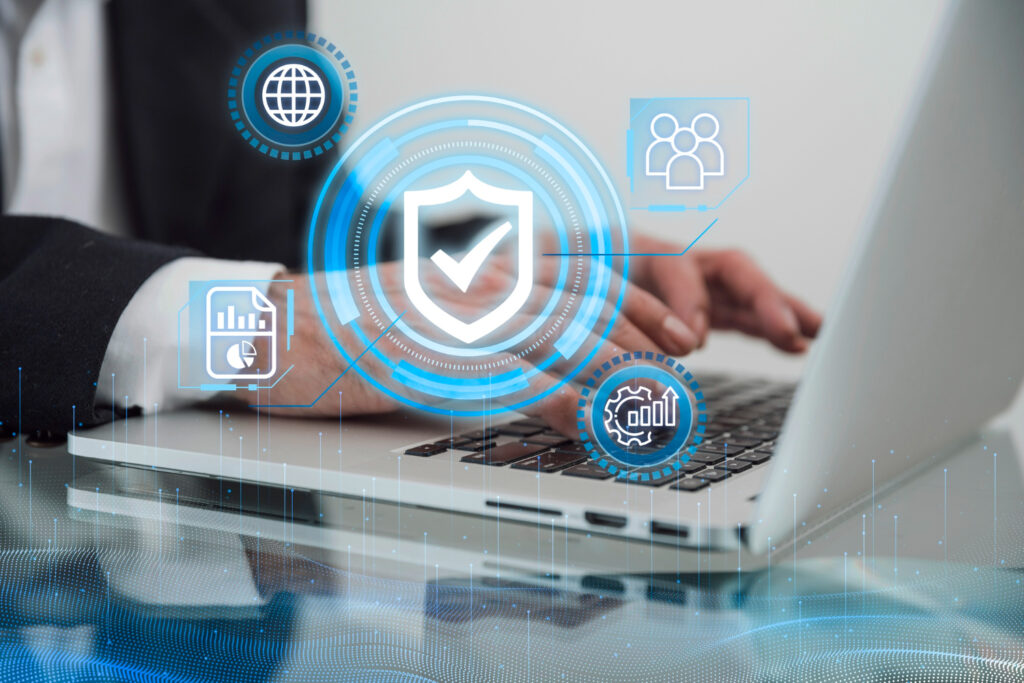
Businesses face many threats to their information security. From data breaches to cyberattacks, protecting sensitive information is more important than ever. This is where ISO 27001 comes in. ISO 27001 is an international standard that helps businesses manage and protect their information.
It provides a clear framework for managing information security and ensures that your business follows best practices. This not only protects your data but also builds trust with clients and partners.
In this article, we’ll explore what ISO 27001 is and why it is crucial for business security. We’ll discuss its key benefits, the steps to implement it in your organisation, and how to maintain compliance.
What Is ISO 27001 and Why It Matters
ISO 27001 is an international standard for managing information security. It sets out a framework for how organisations should handle their data. By following this standard, businesses can protect their information from threats and ensure they comply with regulations.
The purpose of ISO 27001 is to help organisations manage their information security risks. It provides a set of guidelines and best practices designed to secure sensitive data. This includes everything from employee information to customer data and intellectual property.
One of the key elements of ISO 27001 is the Information Security Management System (ISMS). An ISMS is a set of policies and procedures that an organisation uses to manage its information security. By implementing an ISMS, businesses can identify potential threats and take steps to mitigate them. This proactive approach helps prevent data breaches and other security incidents.
Key Benefits of ISO 27001 for Business Security
ISO 27001 offers several key benefits for business security. First, it helps reduce the risk of data breaches. By following the standard’s guidelines, businesses can identify and address potential vulnerabilities in their systems. This reduces the chances of unauthorised access to sensitive information.
Another benefit is regulatory compliance. Many industries have strict data protection regulations. ISO 27001 helps businesses meet these requirements and avoid penalties. By staying compliant, businesses also build trust with regulators and customers.
Implementing ISO 27001 can also improve your organisation’s overall security awareness. The standard requires regular training and education for employees. This ensures that everyone in the organisation understands the importance of information security and knows how to protect data.
ISO 27001 also provides a competitive advantage. Many clients and partners look for certification as a sign that a business takes data security seriously. Having ISO 27001 certification can help your business stand out and attract new clients.
Lastly, ISO 27001 promotes continuous improvement. The standard requires regular reviews and audits of your security measures. This helps you stay ahead of new threats and ensures that your security practices are always up to date. By continually improving your information security, you can protect your business and maintain the trust of your customers.
Steps to Implement ISO 27001 in Your Organisation
Implementing ISO 27001 in your organisation involves several steps. Following these steps will ensure that you set up an effective Information Security Management System (ISMS).
1. Get Management Support: First, secure commitment from your organisation’s top management. Their support is crucial for allocating resources and promoting a culture of security.
2. Define the Scope: Determine which parts of your organisation will be covered by the ISMS. This includes identifying the assets, locations, and information that need protection.
3. Conduct a Risk Assessment: Identify and evaluate risks to your information security. This involves analysing potential threats and vulnerabilities. Use this assessment to define controls and measures to mitigate those risks.
4. Create an ISMS Policy: Develop a comprehensive policy that outlines your organisation’s approach to managing information security. Include guidelines on data handling, access controls, and incident management.
5. Implement Controls: Put the necessary controls in place to address the risks identified in your risk assessment. These may include technical measures like firewalls and encryption, as well as organisational measures like training and policies.
6. Monitor and Review: Continuously monitor the effectiveness of the ISMS. Perform regular audits, reviews, and updates to ensure that your security measures are effective and up to date.
7. Certification: Once your ISMS is in place, consider getting certified by an accredited certification body. This involves an external audit to verify that your ISMS meets the ISO 27001 standard.
Maintaining Compliance and Continuous Improvement
Maintaining your ISO 27001 certification involves ongoing effort. Continuous improvement is key to ensuring that your ISMS remains effective and relevant.
Regular Audits: Conduct internal and external audits regularly to assess the effectiveness of your ISMS. These audits help identify areas for improvement and ensure that your security measures are working as intended.
Training and Awareness: Keep your team updated on the latest security practices and threats. Regular training sessions and awareness programs help maintain a high level of security awareness within your organisation.
Incident Management: Have a robust incident management process in place. This includes procedures for detecting, reporting, and responding to security incidents. Regularly test and refine this process to ensure it is effective.
Update Policies and Procedures: Review and update your security policies and procedures to reflect changes in your organisation or the threat landscape. This helps ensure that your ISMS stays aligned with your business goals and regulatory requirements.
Management Reviews: Hold regular management review meetings to discuss the performance of your ISMS. Use these meetings to make strategic decisions and allocate resources for continuous improvement.
Conclusion
ISO 27001 is crucial for safeguarding your business against security threats. Understanding its benefits and implementing it properly can provide a robust framework for protecting your information assets. It’s not just about complying with regulations; it’s about building a secure foundation for your business operations.
If you need expert help in implementing and maintaining your ISO 27001 certification, look no further than Edara Systems Australia. We can guide you through the process and help you build a strong security framework. Reach out to us today to secure your business’s future.



